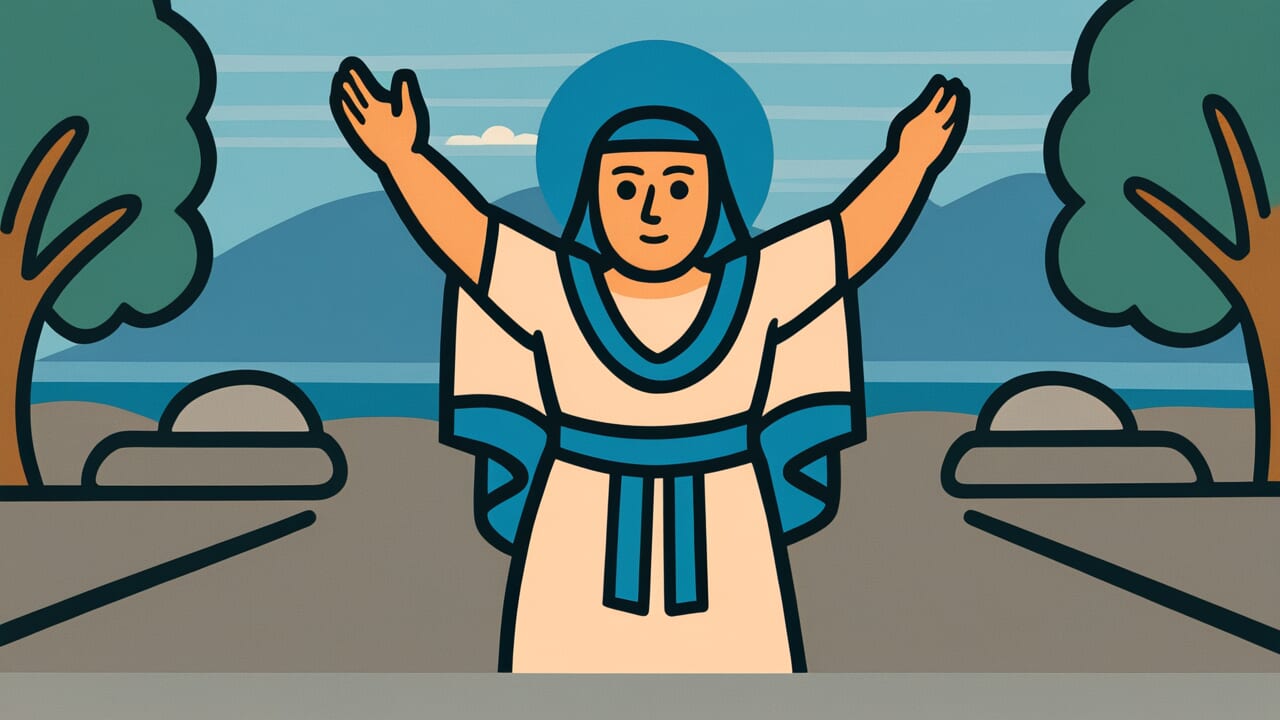How to Read “The local deity is not appreciated”
Tokoro no kamisama arigataka-razu
Meaning of “The local deity is not appreciated”
This proverb describes a human tendency to overlook the value of excellent people who are close to us.
When someone is always nearby, we stop seeing their talents and wonderful qualities. They become too familiar.
A family member’s dedication, a colleague’s abilities, a local teacher’s knowledge—these can all be truly remarkable. But daily contact makes them feel “ordinary.”
Meanwhile, we tend to overvalue people who are far away or famous.
We use this proverb to point out this blind spot in human nature. It reminds us of something important.
This happens when we ignore advice from someone close and seek out a distant expert instead. Or when we envy others while taking our family’s support for granted.
This psychology hasn’t changed in modern times. In fact, today’s information society makes it easier to learn about distant people.
This might make us even more likely to overlook the treasures right at our feet.
Origin and Etymology
No clear written records explain the origin of this proverb. However, we can make interesting observations from its components.
“Tokoro no kamisama” means the deity who protects a particular place or land. Since ancient times, Japanese people believed that gods dwelled in all places.
Each village and region was thought to have its own guardian deity. When traveling, people would visit shrines and pay respect to the local gods.
“Arigataka-razu” means “not arigatai,” but “arigatai” here doesn’t mean “thankful” in the modern sense.
The classical word “arigatashi” originally meant “rare” or “precious.” So “arigataka-razu” means “not rare” or “not valued.”
This proverb expresses a human psychological tendency. The deity of your own land is there every day.
Because of this constant presence, you take it for granted and stop feeling its value.
People happily visit famous shrines far away but rarely go to their local shrine. This contrast illustrates how we overlook the value of what’s close to us.
The proverb uses the universal concept of deities to express this human trait.
Usage Examples
- I ignored my father’s advice and hired an expensive consultant. In the end, they said the same thing my father did. This is exactly what “The local deity is not appreciated” means
- A new employee who just transferred here is amazed by the senior we see every day. Maybe we didn’t notice because “The local deity is not appreciated”
Universal Wisdom
“The local deity is not appreciated” points out a fundamental contradiction in human perception. We tend to measure value by scarcity.
What we see every day doesn’t seem special. People we can meet anytime don’t feel precious.
This psychological mechanism makes some sense as a survival strategy. Paying attention to new information and unusual things helped us adapt to changing environments.
However, this instinct can backfire in modern society.
The truly valuable things are often closest to us. The people who support you daily, the wisdom always at hand, the small joys in everyday life.
These aren’t flashy, but they form the foundation of your life.
Pursuing distant, brilliant things isn’t bad. But you shouldn’t lose sight of what’s at your feet.
This proverb has been passed down for hundreds of years because people in every era repeated the same mistake.
And then they realized: the answer they were searching for was always nearby. People only recognize the value of everyday treasures after losing them.
Our ancestors expressed this universal human trait through the beautiful metaphor of “the local deity.”
When AI Hears This
Our brains receive about 11 million bits of sensory information per second. Yet we can only consciously process about 40 bits.
To handle this massive information gap, the brain uses a strategy: “ignore what doesn’t change.” This is called sensory adaptation.
For example, you notice a smell when entering a room, but it fades after a few minutes. This happens because olfactory receptors reduce their firing rate to the same stimulus.
At the neural cell level, the decision is made: “no need to send unchanging information.”
According to predictive coding theory, the brain constantly predicts the next stimulus. When predictions are correct, it weakens the signal and only emphasizes the unexpected.
In other words, a deity that’s always there is “as predicted,” so the brain automatically lowers its importance.
This mechanism was essential for survival. Change signals danger or opportunity.
But the cost is that “unchanging benefits” like daily safety and health become harder to detect at the neural level.
Our inability to appreciate what’s close isn’t due to lack of gratitude. It’s the result of maximizing the brain’s information processing efficiency.
Understanding this cognitive system shows us the value of consciously directing our gratitude.
Lessons for Today
This proverb teaches us an important perspective we can practice starting today. It’s the habit of “conscious reevaluation.”
First, take a fresh look at the people around you. Family, colleagues, friends. Are you taking their presence for granted?
Consider the knowledge, experience, and kindness they possess. If someone else had these qualities, how would you evaluate them?
This question brings hidden value to the surface.
Next, consciously speak words of gratitude in daily life. Saying “thank you” doesn’t just benefit the other person.
It helps you recognize value again. By putting it into words, what seemed ordinary becomes extraordinary.
Also, before seeking distant things, develop the habit of maximizing nearby resources. Before buying new books, reread the ones on your shelf.
Before seeking new connections, deepen existing relationships. This attitude enriches your life.
Having eyes that notice nearby treasures—that’s the shortest path to happiness.



Comments